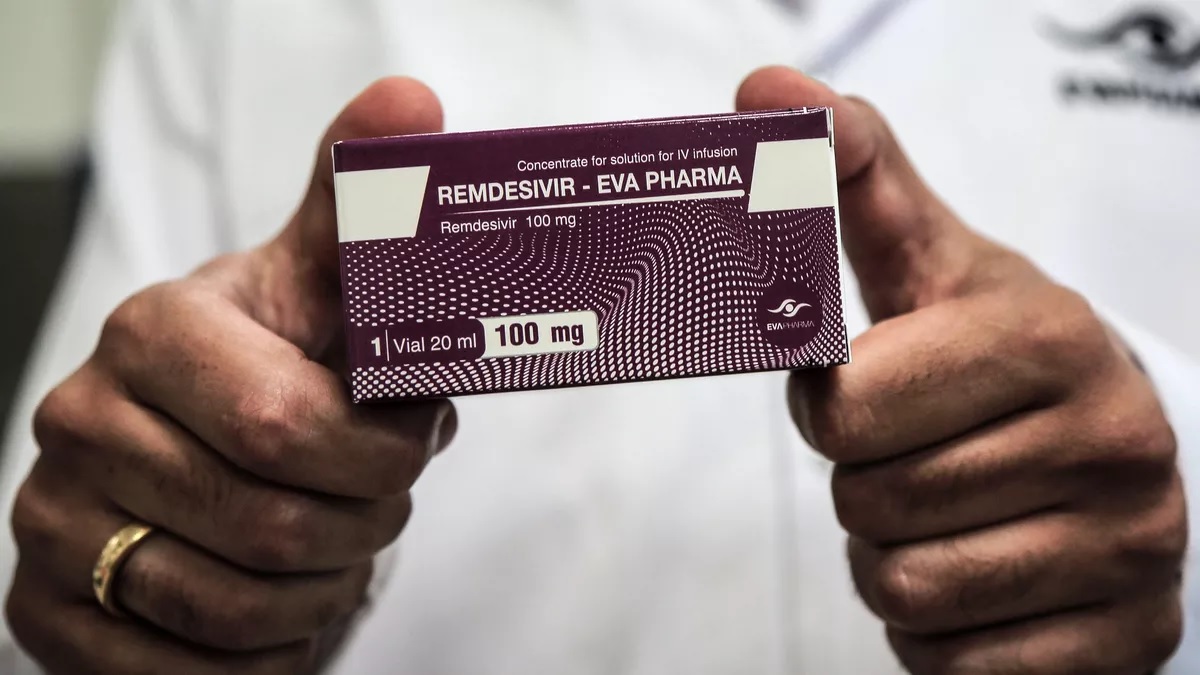RIO DE JANEIRO, BRAZIL – The antiviral Remdesivir, one of the drugs announced by the White House’s medical team for the treatment of US President Donald Trump, diagnosed with Covid-19 last week, is approved on an emergency basis by the US FDA (Food and Drug Administration) agency for cases in adults and children hospitalized with the infection or suspected conditions in the US.
Brazil entered the scene with two important phase III studies, that is, with the involvement of human volunteers to test the drug. This is a major effort, with the involvement of several renowned Brazilian institutions.
The first is part of a World Health Organization (W.H.O.) international effort in the “Solidarity” project, where other drugs are also being tested. The work in Brazil is coordinated by the Oswaldo Cruz Foundation (Fiocruz) and relies on leading medical centers such as the Emilio Ribas Infectology Institute and the Sírio-Libanês Hospital, both in São Paulo.

“These are studies that seek to assertively point out the safety and efficacy of Remdesivir, which has already been shown in preliminary studies,” says Roberto Kalil, general director of the cardiology center of the Sírio-Libanês hospital in São Paulo. Positive Covid-19 patients for Covid-19 in severe or moderate cases of the disease, hospitalized for at least three days, are included in the study. “Once the drug’s efficacy is confirmed, the W.H.O. is expected to determine it as a standard type of treatment,” says infectologist Mirian Dal Ben, also from the Sirio-Libanês.
Another study that includes Remdesivir in its analysis is coordinated by the Heart Institute, in São Paulo. However, the aim is not to determine Remdesivir’s efficacy, but rather to understand its reaction combined with another drug, Tocilizumab. This is because, in some severe Covid-19 patients, the body’s immune response is excessive and can cause lung damage among other consequences.
The goal is to understand if the combined use of the two drugs could somehow mitigate this effect. “Although it is an important defense mechanism, in some patients it is too intense. We are trying to understand if it is possible to block the substance that causes the overreaction,” says Lenio Alvarenga, director of Access and Physician at Roche Farma Brasil, responsible for the drug used in combination.
So far 85 patients have taken Remdesivir combined with this drug – originally intended for the treatment of rheumatoid arthritis – or Remdesivir with a placebo. There are seven centers involved in all, among them the ABC Medical School.
Laboratory studies
At UNIFESP (Federal University of São Paulo), testing with Remdesivir is performed in a laboratory, with no volunteers, but with infected cells. “We are studying its action and its operation mechanism, so we can determine the best way to use it,” said the Dean of the institution Soraya Smaili.
However, the pharmacology specialist alerts that clinical studies (that is, with the involvement of humans) conducted by the university and other educational institutions would be difficult because of the drug’s high import cost. At the National Health Regulatory Agency (ANVISA) there is still no request for registration (i.e. commercial release) of Remdesivir in Brazil.
Remdesivir
Remdesivir is an antiviral drug that blocks virus replication. Created in a laboratory eight years ago, its efficacy was initially tested to fight MERS, the coronavirus respiratory syndrome first identified in Saudi Arabia. Later, it was used as therapy in African cases of Ebola, in Guinea, Sierra Leone, and Liberia, between 2013 and 2016. In the MERS cases, there was a slowdown in the virus replication in the laboratory. With Ebola, the test results in humans were considered disappointing.
The drug received attention still in the early months of the pandemic by showing promising preliminary results in the treatment of critical Covid-19 patients. The studies were published in the highly reputed New England Journal of Medicine. On May 1st, the US drug regulatory agency (FDA) authorized the use of the antiviral drug in people infected with the novel coronavirus. The emergency release, it should be noted, is not as binding as the drug’s formal approval.
Source: Veja

